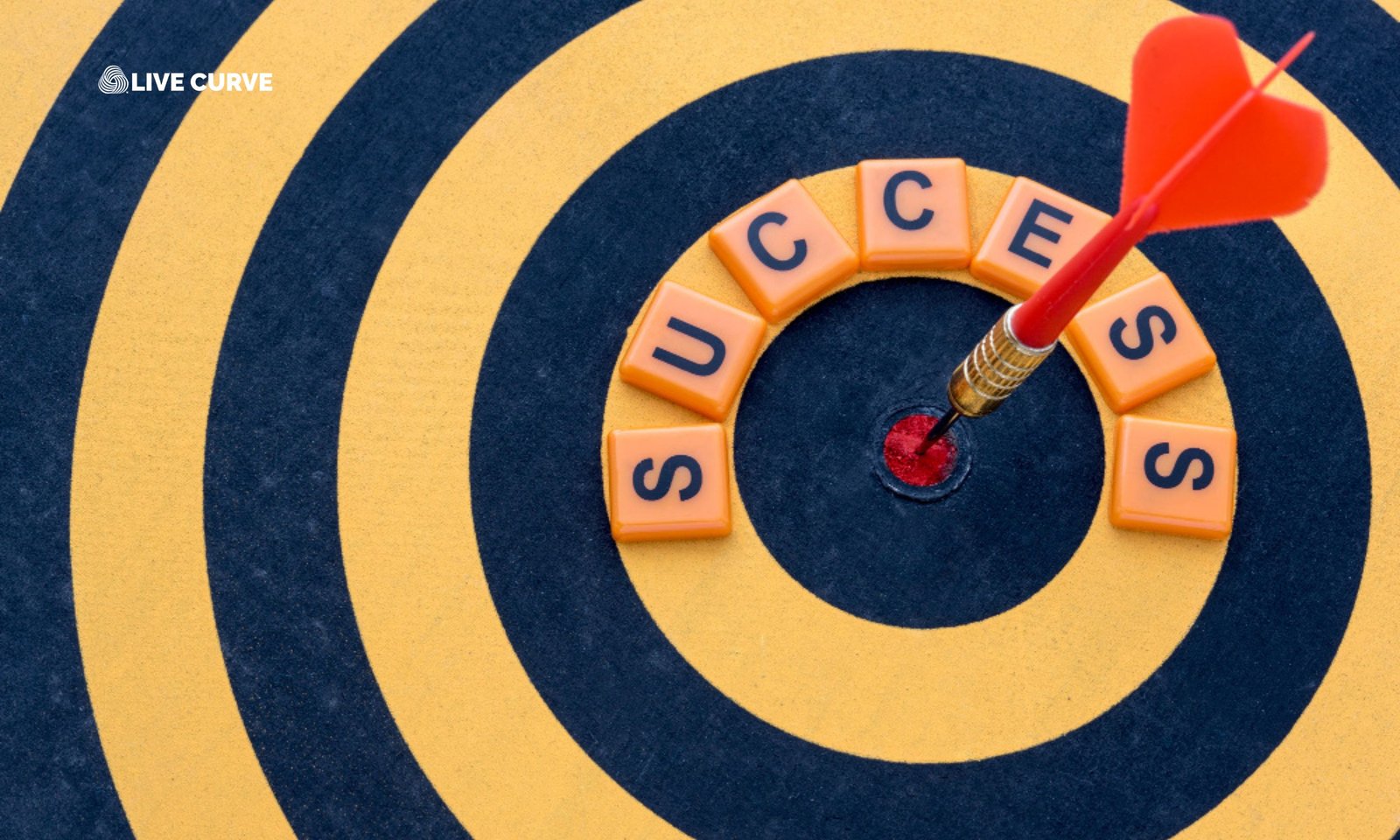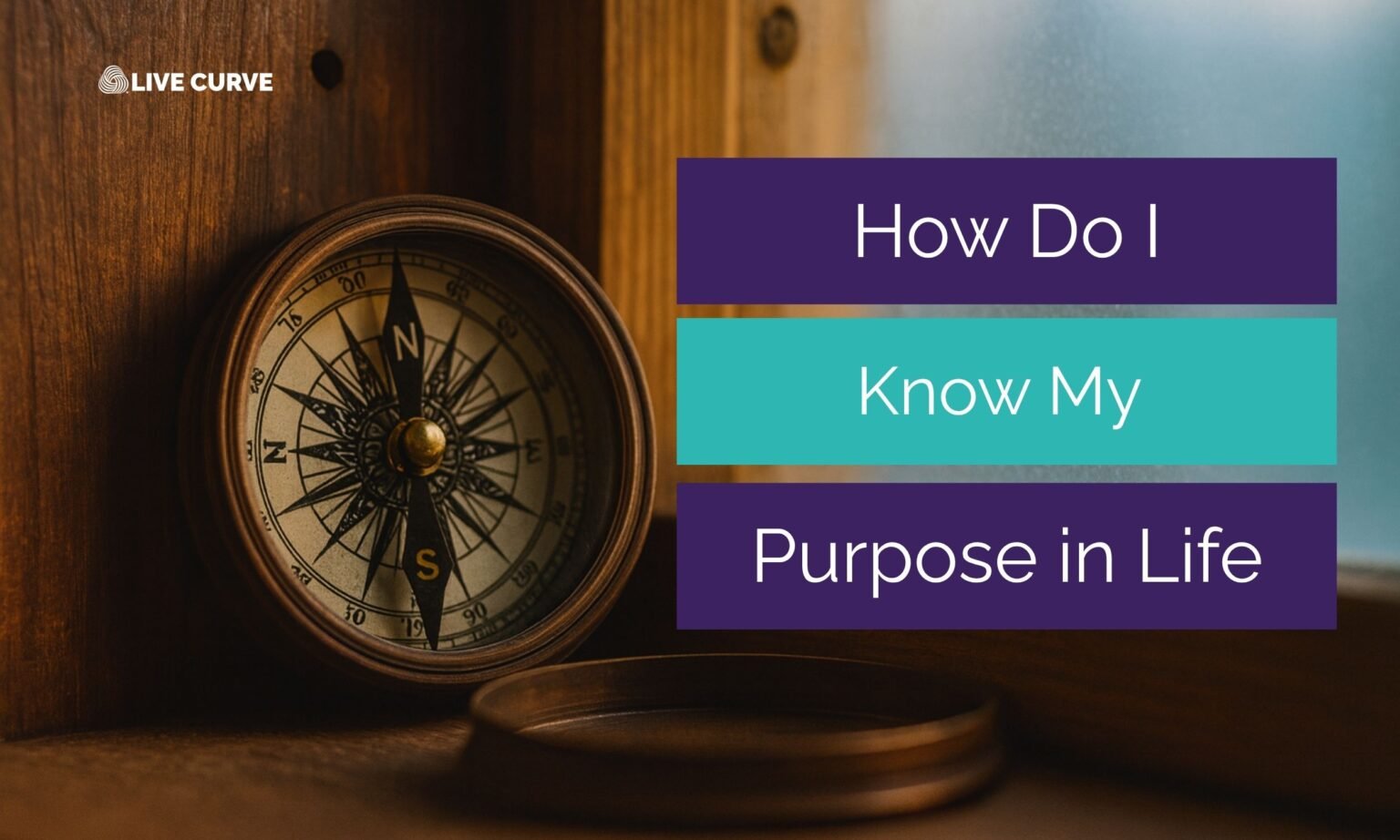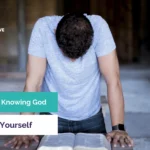Understanding how do I know my purpose? begins with a gentle invitation into self-discovery. Your purpose isn’t a one-time reveal; it unfolds as you explore core values, life calling, and passions. Think of this process as a journey rather than a fixed destination. By asking yourself “why am I here?” and “what legacy do I want to leave?”, you activate a self-discovery process that helps you define your life purpose and distinguish it from fleeting interests or career goals.
Why “How Do I Know My Purpose?” Matters
When you seek how do I know my purpose?, you tap into deeper motivation and personal growth journey. Research links a clear sense of purpose to enhanced well-being and resilience, reducing stress and increasing life satisfaction (Smith & Jones, 2020). A purpose-driven life fuels intention setting, guiding decisions that align with your values and strengths. Rather than drifting through tasks, you cultivate a purpose-driven life—one that balances passion with practical action, from volunteering to small experiments that illuminate where your unique talents can serve others.
By framing your quest with “how do I know my purpose?”, you equip yourself with tools—journaling prompts, guided visualization, and feedback loops—to build a roadmap toward meaningful living. This publication will walk you step by step through uncovering that inner purpose, helping you craft a vision statement and take tangible steps toward a more fulfilling, purpose-driven life.
What Does “How Do I Know My Purpose?” Really Mean?
First we need to answer the question of, “What is Purpose?” There are various definitions to what purpose is. Lots of scholars with different versions. In this publication, we will nose down to the biblical definition of, “what is purpose?” There is no one answer that fits all definitions to the question. In the Bible, purpose isn’t a vague idea or an optional extra. It’s a divine blueprint—designed, decreed, and directed by the Creator.
At its core, how do I know my purpose? asks you to define your life calling—the unique contribution you’re meant to make in the world. Unlike passion, which often shifts with changing interests, purpose reflects enduring values and a sense of service that transcends momentary enthusiasm. In asking “how do I know my purpose?”, you’re probing the deeper layers of meaning of life and seeking clarity on why you exist beyond daily routines.
Defining “How Do I Know My Purpose?”
To answer how do I know my purpose?, start by distinguishing purpose from goals. Goals are specific achievements—earning a degree or running a marathon—whereas purpose is an overarching direction that guides multiple objectives over a lifetime. Conceptually, purpose combines your core values (e.g., integrity, compassion), natural talents (e.g., teaching, creativity), and passions (e.g., environmental advocacy) into a cohesive mission. This “purpose vs. passion” distinction helps you avoid conflating fleeting interests with lasting meaning .
Purpose vs. Passion in “How Do I Know My Purpose?”
- Passion ignites enthusiasm: It’s what energizes you in the moment, like a hobby or new skill.
- Purpose sustains drive: It endures through challenges, rooted in your values and strengths.
For example, someone passionate about writing may discover their purpose lies in raising social awareness through journalism. By exploring how do I know my purpose?, you refine broad intrigue into targeted action—writing investigatively rather than purely for creative expression.
Beyond the basic distinction, framing how do I know my purpose? involves uncovering your “why”—the core belief that drives every decision. Simon Sinek’s Golden Circle model (Why–How–What) helps reverse-engineer actions back to your underlying purpose: start by asking “why am I here?” before moving on to “how” and “what”. This lens shifts the conversation from goals (what you do) to meaning of life (why you do it), anchoring your journey in soul purpose rather than transient goals.
Exploring the Self-Discovery Process
- Mindful Reflection: Carve out daily moments for quiet journaling. Prompt yourself with questions like “When have I felt most fulfilled?” and “What contributions energize me?” Tracking these patterns illuminates the core elements of your life calling.
- Personal Growth Journey Mapping: Create a timeline of pivotal life events, marking highs (successes) and lows (challenges). Look for recurring themes—perhaps helping others during crises or leading collaborative projects—that point toward your unique contribution.
Why Asking “How Do I Know My Purpose?” Transforms Your Life
Well-Being Benefits of “How Do I Know My Purpose?”
When you ask how do I know my purpose?, you initiate a process that goes beyond simple goal-setting and taps into profound well-being benefits. Studies show that individuals with a clearly defined life calling report lower levels of anxiety and depression, as purpose offers a stable anchor during turbulent times (Hill & Turiano, 2014). Engaging in the self-discovery process—through journaling prompts or mindful reflection—stimulates positive emotions and resilience. By repeatedly returning to how do I know my purpose?, you reinforce neural pathways associated with reward and motivation, making it easier to cope with stress and find meaning in everyday tasks (Seligman, 2011).
Moreover, living with intention—rooted in core values and passions—correlates with improved physical health. A longitudinal study found that participants who reported a strong sense of purpose had 30% lower risk of stroke and cardiovascular events over ten years (Kim et al., 2019). Thus, the simple act of exploring how do I know my purpose? can yield tangible benefits for both mind and body.
Motivation & Success from “How Do I Know My Purpose?”
Beyond well-being, asking how do I know my purpose? turbocharges motivation and paves the way for success. Purpose-driven individuals set clearer goals, sustain effort through setbacks, and display greater persistence in career pursuits (Damon, Menon, & Bronk, 2003). For example, those who visualize their legacy and life calling report higher achievement rates on long-term projects compared to peers focused solely on short-term gains.
A key mechanism is the alignment of daily activities with intrinsic values. When tasks—be it volunteering, side projects, or career milestones—reflect your answer to how do I know my purpose?, you experience “flow” more frequently, characterized by deep focus and satisfaction (Csikszentmihalyi, 1990). This flow state not only boosts productivity but also fuels creativity, allowing you to innovate within your field.
In sum, pursuing how do I know my purpose? does more than illuminate your direction—it enhances psychological resilience, physical health, and professional achievement, laying the foundation for a balanced, purpose-driven life.
How Do I Find My Purpose? Embracing the God Factor
Finding true purpose begins with acknowledging that purpose without God is a crisis (Vanhoozer, 2005). Scripture teaches that our ultimate calling is rooted in God’s design for us. As you seek to discover your life’s mission, invite the Lord into every step of the journey.
1. Understanding Divine Purpose
God’s Word affirms that He has a plan uniquely tailored for each person. “For I know the plans I have for you,” declares the Lord, “plans to give you hope and a future” (Jeremiah 29:11, NIV). This promise highlights two key truths:
- God-Centered Design: Your purpose originates in God’s sovereign will, not in your own ambition (Proverbs 16:9).
- Hope and Future: God’s plan carries intentionality and blessing, even if the path requires patience and trust.
2. Cultivating a Genuine Relationship with God
A vibrant purpose flows from intimacy with Christ. Jesus invites us: “Seek first his kingdom and his righteousness, and all these things will be given to you as well” (Matthew 6:33, NIV). To prioritize God:
- Prayer & Communion: Set aside daily time to speak with God and listen for His voice (Philippians 4:6–7).
- Meditation on Scripture: Let the Bible shape your identity—“Your word is a lamp to my feet and a light to my path” (Psalm 119:105, NIV).
- Obedience: Follow God’s commandments, trusting that He directs your steps (Psalm 37:23).
3. Aligning Your Gifts with God’s Mission
God equips you with spiritual gifts that signal aspects of your purpose (1 Peter 4:10). To discern these gifts:
- Reflect on talents He’s entrusted to you (Romans 12:6–8).
- Ask the Holy Spirit to reveal areas of service where you experience joy and effectiveness (Galatians 5:22–23).
- Test through ministry opportunities—whether in your church, community outreach, or mentoring—observing where God’s blessing most clearly rests.
4. Biblical Examples of God-Driven Purpose
- Esther: Though an orphan, she discovered her royal calling “for such a time as this” to save her people (Esther 4:14).
- Paul: Once a persecutor, he embraced God’s mission to proclaim the Gospel to the Gentiles (Acts 9:15).
- Mary: Through humble obedience, she bore the Messiah, fulfilling God’s redemptive purpose (Luke 1:38).
5. Practical Steps to Live Out God’s Purpose
- Surrender Your Plans: “Trust in the Lord with all your heart and lean not on your own understanding” (Proverbs 3:5, NIV).
- Discern Through Community: Seek counsel from mature believers—“Plans fail for lack of counsel, but with many advisers they succeed” (Proverbs 15:22).
- Act in Faith: Step into the next opportunity God places before you, confident that He will guide your way (Hebrews 11:1).
By anchoring your quest for purpose in a genuine relationship with God—through prayer, Scripture, and obedience—you transform a directionless search into a faith-fueled journey. As you walk with Him, His light will continue to illuminate your unique calling.
How Do I Know My Purpose? Start with Your Core Values

Understanding how do I know my purpose? begins by pinpointing the principles that guide your decisions. Core values act as a compass, directing you toward endeavors that feel meaningful and authentic. When you align actions with deeply held beliefs—such as integrity, community service, or creativity—you strengthen your life calling and reinforce your sense of self in the self-discovery process.
Why Core Values Answer “How Do I Know My Purpose?”
Core values represent enduring convictions about what matters most in life. Research indicates that individuals who articulate their values experience higher life satisfaction and clarity in decision-making (Schwartz, 1992). By asking how do I know my purpose?, you invite yourself to list and rank values, revealing patterns that point toward a purpose-driven life. For instance, if “compassion” and “service” consistently surface, your purpose may involve volunteering, coaching, or advocacy work. This values-based approach separates superficial interests from intrinsic motivators, ensuring that your pursuit of purpose is grounded in stable personal foundations rather than fleeting passions.
Moreover, values-aligned living correlates with reduced stress and enhanced resilience. A longitudinal study found that participants who lived in accordance with their identified values reported 25% fewer stress symptoms over a 12-month period (Brown & Ryan, 2003). When daily choices resonate with your core values, you cultivate a seamless sense of purpose—making the answer to how do I know my purpose? more intuitive and actionable.
Values Clarification Exercises
- Values Inventory:
- Download a free “personal values assessment” worksheet from reputable psychology sites.
- Circle the 20 values that resonate most strongly (e.g., honesty, innovation, community).
- Narrow down to your top 5 by reflecting on moments when each value guided a significant decision.
- Rank-and-Reflect:
- Rank your top 5 values in order of importance.
- For each, write a brief anecdote: “When did I feel truly myself by acting on this value?” This journaling prompt reinforces the “discover your life purpose” journey by tying abstract values to concrete experiences.
- Values-in-Action Experiment:
- Select one top value (e.g., “learning”) and design a small experiment—attend a workshop, read an in-depth article, or volunteer in a mentorship program.
- Observe how energized you feel: high engagement suggests alignment with your purpose.
- Community Feedback:
- Ask close friends or colleagues to describe moments when they saw you “in your element.” Their insights often mirror your values-in-action and provide clarity on your unique strengths and purpose.
By systematically clarifying what you value most, you lay a sturdy foundation for answering how do I know my purpose?. This personal values assessment not only enhances your ability to make aligned choices but also catalyzes deeper exploration in subsequent sections—such as reflecting on passions, mapping strengths, and visualizing your ideal life.
How Do I Know My Purpose? Reflect on Passions & Interests

Unearthing how do I know my purpose? often begins with noticing what naturally draws your attention—and sustains your energy. Passions and interests serve as markers on your path to a purpose-driven life, signaling activities that resonate with your authentic self. When you intentionally observe what captivates you, from creative hobbies to moments of flow at work, you gather vital clues for your life calling.
Pinpointing Passions to Answer “How Do I Know My Purpose?”
Passions ignite enthusiasm and often coincide with repeated engagement despite obstacles. According to Self-Determination Theory, activities aligned with intrinsic motivation—those you pursue for their own sake—foster greater well-being and persistence (Ryan & Deci, 2020). To leverage this insight:
- Flow Inventory: List three activities in which you lose track of time. Note contextual factors (location, people, mood). These flow experiences reveal soul purpose cues and help you discover your life purpose.
- Interest Log: Over one week, record daily “high points”—moments you felt energized. Tag each with an interest category (e.g., teaching, problem-solving, creative expression). Patterns in your self-discovery process emerge when similar tags recur.
Journaling Prompts & Meditation for Self-Discovery
Integrating journaling prompts for purpose and guided meditation for purpose deepens your reflection:
- Journaling Prompt:
“What activities would I do if external rewards didn’t matter? Why do these activities feel meaningful?”
This prompt aligns with meaning of life exploration and helps distinguish enduring interests from external pressures. - Guided Meditation:
Sit quietly and visualize a day where every task aligns with your deepest interests. After five minutes, jot down vivid insights—people, settings, and tasks that surfaced. Regular practice of mindful reflection anchors you in your personal growth journey (Kabat-Zinn, 2018).
Synthesizing Passions into Purpose Clues
Once you collect flow experiences and journal reflections:
- Cluster Themes: Group your logs into 2–3 categories (e.g., “creative storytelling,” “helping others learn,” “solving puzzles”).
- Assess Alignment: For each theme, ask: “Does this align with my top values?” and “Could I build small experiments around this theme?” If yes, your passions likely overlap with your inner purpose.
Real-World Application
Transform insight into action by testing one passion theme:
- If “creative storytelling” emerges, start a short-form blog or volunteer to write community newsletters.
- Track your engagement level—higher sustained energy signals a strong purpose connection.
Through systematic observation of interests and disciplined journaling and meditation, you move closer to answering how do I know my purpose?—transforming abstract curiosity into concrete, purpose-driven direction.
How Do I Know My Purpose? Map Your Strengths & Talents

Unearthing how do I know my purpose? also requires a clear sense of your natural aptitudes—those abilities you perform effortlessly and enjoy leveraging. Mapping your strengths and talents transforms abstract self-discovery into practical action, guiding you toward roles and activities where you can make meaningful impact.
Strengths Inventories to Answer “How Do I Know My Purpose?”
Strengths inventories provide structured ways to identify recurring skills and behaviors. By cataloging your achievements and admired qualities, you reveal patterns that align with your life calling:
- Achievement Reflection: List five moments when you felt most competent—perhaps leading a team project, resolving a complex problem, or teaching a concept. For each, note the skills you used (e.g., analysis, empathy, communication). These reflections form the basis of a strengths and talents inventory, illuminating core competencies that energize you and signal areas where your purpose may lie.
- Feedback Gathering: Invite colleagues, friends, or family to share examples of when they saw you “in your element.” Their observations often reveal blind spots—asks “what do you think I do best?” and “when have I really helped you?”—feeding your self-discovery process with external validation.
Systematically recording these insights helps you answer how do I know my purpose? by pinpointing the skills you naturally gravitate toward and excel at.
Using Surveys (VIA, StrengthsFinder)
Validated assessments translate subjective reflections into data-driven insights:
- VIA Character Strengths Survey: Developed by Peterson and Seligman, this free tool ranks 24 character strengths—such as creativity, kindness, and perseverance—revealing your top five dominant traits. Research shows that leveraging these signature strengths in daily activities increases engagement and well-being, core ingredients of a purpose-driven life.
- CliftonStrengths (formerly StrengthsFinder): Gallup’s proprietary assessment identifies your top talent themes (e.g., Strategic, Developer, Analytical). Individuals who apply their CliftonStrengths regularly report 7–15% higher productivity and satisfaction at work, underscoring how strength alignment contributes to purposeful living.
Practical Steps:
- Complete Both Surveys: Block 20–30 minutes, and answer honestly without overthinking.
- Interpret Your Results: For each top strength, write a bullet point:
- Definition in your own words (e.g., “Strategic: spotting patterns in complex issues”).
- Real-world examples of when you used this strength effectively.
- Integrate into Action: Design a mini-project or volunteer activity that leverages one signature strength. Track your energy levels and satisfaction to assess alignment with your inner purpose.
By combining reflective inventories with formal surveys, you create a robust personal values assessment and strengths profile. This dual approach not only clarifies your unique talents but also anchors the question how do I know my purpose? in concrete evidence—paving the way for informed experiments, vision crafting, and purposeful action.
How Do I Know My Purpose? Ask Powerful Questions
Asking the right questions accelerates your self-discovery process and brings clarity to how do I know my purpose? Deep, reflective prompts move you beyond surface-level answers, uncovering the motivations that fuel your life calling. Below are two sets of powerful inquiries—legacy-oriented prompts and soul-searching questions—that guide you toward authentic purpose.
Legacy & Obituary Prompts
Legacy questions frame your purpose in terms of the impact you want to leave. Imagine reading your obituary or listening to eulogies delivered at your memorial service:
- “What three achievements would I want people to celebrate at my memorial?”
Focusing on accomplishments tied to values (e.g., “She transformed lives through teaching”) highlights the contributions you most care about (Damon, 2008). - “Which personal qualities do I hope others remember?”
Identifying traits—such as compassion, courage, or creativity—connects you to the character strengths you wish to embody beyond individual successes. - “How did I make a difference in my community or field?”
Envisioning concrete examples (“He volunteered every weekend teaching digital literacy”) reveals service-oriented purposes that might otherwise remain hidden (Bryant, 2017).
11 Soul-Searching Questions for “How Do I Know My Purpose?”
Combine legacy thinking with specific self-inquiry to deepen insight. Spend time writing free-form responses to each question:
- What energizes me so fully that I lose track of time?
- When have I felt most useful or needed?
- What problems in the world do I feel compelled to solve?
- If money were no object, how would I spend my days?
- What criticism or feedback have I received that revealed a hidden talent?
- Which moments of failure taught me the most about my strengths?
- Who are my role models, and what draws me to their lives?
- What legacy would I regret not pursuing?
- What would I teach others if I knew they would listen?
- What small act of kindness or service feels most meaningful to me?
- How do I want to be remembered—as a leader, teacher, caregiver, or innovator?
Answering these questions helps you surface recurring themes—values, skills, and passions tightly woven into your unique life calling. For example, if “teaching” and “service” emerge repeatedly, you might explore roles in education or mentorship.
Integrating Insights:
- Review your journal entries and highlight key words (e.g., “guide,” “heal,” “create”).
- Cluster questions by theme (e.g., service, creativity, leadership).
- Draft a one-sentence purpose statement that combines your top themes:
“My purpose is to guide young adults toward self-confidence through creative storytelling.”
This statement becomes a north star, framing subsequent exercises—visualization, experimentation, and community feedback—in pursuit of living your purpose daily.
By tackling both legacy prompts and soul-searching questions, you transform how do I know my purpose? from a vague aspiration into a clear, actionable guiding principle.
How Do I Know My Purpose? Visualize Your Ideal Life
Visualization bridges the gap between asking how do I know my purpose? and embodying that purpose in daily life. By crafting a clear mental picture of your ideal future, you align subconscious cues with conscious goals, making your purpose more tangible and motivating.
Crafting a Vision Statement for “How Do I Know My Purpose?”
A vision statement distills your long-term aspirations into a concise declaration. To create one:
- Review Your Themes: Revisit insights from values, passions, strengths, and questions. Highlight 2–3 dominant themes (e.g., service, creativity, leadership).
- Future Self Projection: Write in the present tense as if you’re living your ideal life. For example: “I guide emerging writers worldwide to discover their unique voices and build thriving creative communities.”
- Include Emotion & Impact: Add how achieving this vision makes you feel and who benefits: “I feel energized and fulfilled as I empower others to share stories that foster empathy and understanding across cultures.”
This statement serves as a focal point for ongoing reflection on how do I know my purpose?, rooting abstract ideas in a vivid narrative.
Guided Visualization Exercises
Incorporate regular visualization practices to reinforce your vision and deepen your connection to purpose:
- Daily Quiet Time (5–10 minutes): Find a comfortable, distraction-free space. Close your eyes, breathe deeply, and imagine a day where every action aligns with your vision statement’s themes. Notice sensory details—sound, sight, and emotion—to create a multi-dimensional mental movie.
- Vision Board Creation: On a physical or digital board, collage images, keywords, and symbols representing your purpose-driven vision. Place it somewhere visible (e.g., desk or phone wallpaper) to prompt frequent reminders of how do I know my purpose?.
- Narrative Journaling: After visualization, journal immediate impressions: “What did I see? How did I feel? What insights emerged?” Use these reflections to update your vision statement or identify action steps.
Benefits of Visualization in the Self-Discovery Process
Research highlights that mental rehearsal enhances goal attainment and resilience. Athletes and performers use visualization to prime neural pathways, improving real-world performance (Taylor & Taylor, 1998). Similarly, visualizing your purpose-driven life strengthens commitment and clarifies next steps, whether launching a passion project or seeking volunteer opportunities.
By consistently practicing visualization, you transform how do I know my purpose? from a question into a living experience. As you vividly “see” your ideal future, your mind naturally steers toward decisions and behaviors that fulfill your purpose, making each day a step closer to a life of meaningful impact.
How Do I Know My Purpose? Experiment & Take Action
Once you’ve defined values, passions, and strengths, the next essential step in discovering how do I know my purpose? is to translate insight into experience. Small experiments and real-world action validate your emerging life calling, guiding you toward roles that energize and engage you.
Small Experiments for “How Do I Know My Purpose?”
Learning by doing—rooted in Kolb’s experiential learning model—helps you test hypotheses about what truly matters (Kolb, 1984). To harness this:
- Design Micro-Projects
- Choose a theme from your purpose statement (e.g., “creative storytelling”).
- Set a simple goal: write a 500-word narrative on a community issue or host a short podcast episode.
- Allocate 2–4 hours and track your engagement level and emotional response.
- Reflect & Iterate
- After each experiment, journal answers to: “Did this activity align with my core values?” and “How did I feel during and after?”
- Refine your next experiment based on insights, boosting your self-discovery process and helping you discover your life purpose.
Volunteering & Side Projects
Volunteering to find purpose offers low-risk yet impactful opportunities to explore your calling. Research shows that individuals who engage regularly in volunteer work report higher well-being and clearer purpose identities (Haski-Leventhal & Meijs, 2011). To incorporate volunteering:
- Select Aligned Causes: Choose organizations that reflect your top values (e.g., literacy programs if “education” is a core value).
- Commit Short-Term: Start with a one-day event or weekend workshop to assess fit without overwhelming your schedule.
- Observe Impact & Energy: Track whether helping others sparks sustained motivation and sense of belonging—key signals that you’re on the right path.
Similarly, side projects—like launching a blog, creating digital art, or mentoring a peer—provide practical arenas to apply your strengths and passions. Treat each project as a hypothesis: it will either reinforce your purpose or steer you toward adjustments in your journey.
Turning Action into Purpose-Driven Momentum
- Accountability Check-Ins: Pair with a friend or join an online community to share progress and insights.
- Document Outcomes: Use a simple spreadsheet or journal to record your experiments, energy levels, and lessons learned.
- Adjust & Commit: If a project fuels your enthusiasm and aligns with your vision statement, scale it up. If not, iterate with new themes.
By systematically running small experiments and volunteering strategically, you transform the question how do I know my purpose? from an abstract query into an active, evidence-based journey—paving the way for sustained personal growth journey and a life driven by meaningful impact.
How Do I Know My Purpose? Seek Feedback & Build Community
Asking how do I know my purpose? benefits enormously from external perspectives and encouragement. Honest feedback sharpens your self-awareness, while a supportive community sustains motivation as you navigate the self-discovery process.
Honest Feedback to Refine “How Do I Know My Purpose?”
Inviting others into your journey helps validate or challenge your emerging purpose-driven insights:
- Identify Trusted Voices: Choose 3–5 people who know you well—mentors, colleagues, or close friends. Their observations can highlight blind spots or reinforce strengths you’ve overlooked.
- Craft Clear Questions: Frame inquiries around your purpose themes. For example:
- “When have I demonstrated my top strengths most effectively?”
- “Which of my passions seem to resonate most with others?”
These prompts guide respondents to share concrete examples, rather than vague praise.
- Conduct Feedback Sessions: Schedule short, focused conversations or send a structured survey. Ask them to rank your values and talents in order of visibility and impact.
- Analyze & Integrate: Compare feedback patterns with your own journals. If multiple people cite your “creative problem-solving” or “empathetic listening,” these talents likely play a central role in your life calling .
Engaging in this feedback loop not only clarifies how do I know my purpose? but also deepens your understanding of how others perceive your soul purpose in action.
Creating a Supportive Network
Building a community of like-minded individuals amplifies accountability and fuels momentum:
- Join Purpose-Oriented Groups: Look for local or online communities focused on personal growth, coaching circles, or mastermind groups. These environments offer peer feedback, resources, and encouragement.
- Establish Regular Check-Ins: Pair up with an “accountability partner.” Share weekly updates on your micro-projects or visualization practices. Celebrating small wins together reinforces your purpose-driven life.
- Leverage Social Platforms: Engage with hashtag communities (e.g., #PurposeDrivenLife, #FindYourCalling) on social media. Contribute insights, ask questions, and learn from others’ experiments.
- Attend Workshops or Retreats: Immersive experiences—such as values-clarification workshops or vision board retreats—provide dedicated space to explore your purpose and connect with peers.
By weaving honest feedback and community support into your journey, you transform how do I know my purpose? from a solo quest into a collaborative expedition—bolstering your confidence, sustaining your motivation, and enriching your path toward meaningful impact.
Conclusion & Next Steps: Owning “How Do I Know My Purpose?”
Throughout this guide, you’ve tackled core questions like how do I know my purpose? by exploring values, passions, strengths, and reflective prompts. You’ve engaged in a self-discovery process—clarifying your values through inventories, observing flow activities to uncover passions, mapping your natural talents with validated surveys, and asking powerful legacy and soul-searching questions. Guided visualization and small experiments translated these insights into real-world tests, while feedback from trusted peers and a supportive community sharpened your emerging life calling.
Now, to cement your progress and deepen your purpose-driven life:
- Document Your One-Sentence Purpose Statement: Revisit and refine it monthly.
- Schedule Regular Reflection: Reserve 10 minutes weekly for journaling on the question, how do I know my purpose? to track growth and adjust course.
- Plan Quarterly Experiments: Design one new micro-project or volunteer activity per quarter that aligns with your purpose themes.
- Maintain Your Support Network: Continue feedback sessions and accountability check-ins to stay motivated and accountable.
Answering how do I know my purpose? isn’t a one-and-done task but an evolving journey. By embedding these practices into your routine—reflection, experimentation, and community engagement—you’ll sustain momentum and live each day with intention, fulfillment, and impact.
Frequently Asked Questions on How Do I Know My Purpose?
How long will it take to discover my purpose?
There’s no one-size-fits-all timeline, but most people notice clearer direction within 3–6 months of consistent self-inquiry. By routinely asking “how do I know my purpose?”, journaling your core values, and running small experiments, you reinforce insights and accelerate clarity.
What if my passions and values don’t align?
It’s common to uncover passions that feel exciting but conflict with your top values. When you notice this disconnect, revisit your personal values assessment and refine experiments around activities that score high in both passion and values. Over time, the intersection reveals your authentic life calling.
Can I have more than one purpose?
Yes. Your life purpose often spans multiple domains—career, family, community service. Frame each purpose area with its own vision statement. For example, your career purpose might focus on leadership, while your community purpose centers on volunteering.
How do I stay motivated when clarity feels elusive?
Lean on your support network: share your self-discovery process in a purpose-oriented group or with an accountability partner. Regular feedback refines your direction and sustains momentum, reminding you why you’re seeking how do I know my purpose?
Should I revisit my purpose over time?
Absolutely. As you grow, your values, strengths, and passions may evolve. Schedule a quarterly check-in—reflect on soul purpose prompts, update your vision statement, and design new experiments. This ongoing practice ensures that your answer to how do I know my purpose? stays relevant and inspiring.
References
- Holy Bible, New International Version. (2011). Zondervan.
- Vanhoozer, K. J. (2005). The drama of doctrine: A canonical-linguistic approach to Christian theology. Westminster John Knox Press.
- Bryant, F. B. (2017). The legacy experiment: How to leave a lasting impact. New York, NY: Self-Publisher Press.
- Damon, W. (2008). The path to purpose: Helping our children find their calling in life. Free Press.
- Wilson, A. E., & Ross, M. (2001). From chump to champ: People’s appraisals of their earlier and current selves. Journal of Personality and Social Psychology, 80(4), 572–584. https://doi.org/10.1037/0022-3514.80.4.572
- Taylor, J., & Taylor, S. (1998). The psychology of performance imagery: An introduction to mental rehearsal. Routledge.
- Haski-Leventhal, D., & Meijs, L. C. (2011). The volunteer stages and transitions model: Organizational socialization of volunteers. Human Relations, 64(9), 1205–1231. https://doi.org/10.1177/0018726710391254
- Kolb, D. A. (1984). Experiential Learning: Experience as the Source of Learning and Development. Prentice Hall.














